#J.D. Smith
Text
J.D.Smith, 'Proposal'
Resign yourself, my heart’s delight, To me before a better offer Comes along with hair and height, A sea-deep chest, a bulging coffer. Don’t wait for him: if love’s a song, I am the toad’s primeval croak. If love’s a wheel, then I belong Among its rusty, broken spokes. If I mean nothing in the world To you, that nothing could be all, A version of transcendence, curled And primed to blossom from…
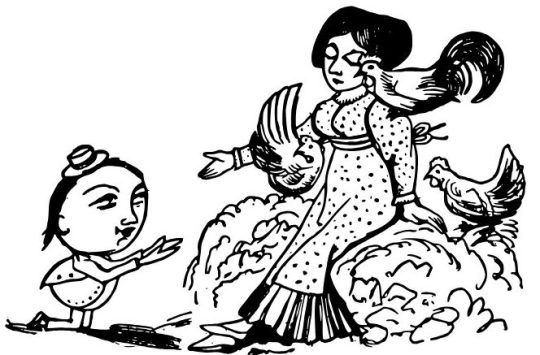
View On WordPress
#courtship#Edward Lear#J.D. Smith#light verse#Philip Larkin#proposal#rhyme#romance#self-deprecation#The Killing Tree#Yonghy-Bonghy-Bo
0 notes
Text
Surveying the reactions of top Republicans after Donald Trump’s indictment on charges of mishandling classified information, you’d think the country was in the midst of a coup.
“It is unconscionable for a President to indict the leading candidate opposing him,” House Majority Leader Kevin McCarthy tweeted. “The weaponization of federal law enforcement represents a mortal threat to a free society,” Florida Gov. Ron DeSantis claimed. “There is no limit to what these people will do to protect their power & destroy those who threaten it, even if it means ripping our country apart,” Sen. Marco Rubio declared.
These are extraordinary claims — and all made on Thursday night before the indictment or the evidence behind it was made public. On Friday morning, we learned thanks to CNN that Trump is literally on tape in 2021 discussing having documents in his possession that he knew were still classified. “As president, I could have declassified, but now I can’t,” he reportedly said.
The tape may or may not prove dispositive in a court of law; there’s certainly room for good-faith disagreement on the strength of the case against Trump. But the tape is at least very strong evidence that these charges are not some kind of Biden-mandated witch hunt but instead based on very serious allegations of wrongdoing.
Yet top Republicans — including Trump’s leading rival for the 2024 election — have shown no signs of changing their tune, and instead are lining up behind Trump’s conspiracy theory that special counsel Jack Smith is leading Joe Biden’s personal Stasi.
This paranoid reaction to Trump’s indictment is not a surprise. Over the past several years, the political right has been captured by a worldview that sees the entirety of mainstream society arranged against it. According to this thinking, America’s “woke” power elite, including ostensibly neutral institutions of governance like the Justice Department, is determined to stamp out the conservative way of life. You are either with us or against us — and attempting to send Trump to jail, whatever the reason, puts you on the wrong side.
Such once-fringe thinking now dominates the Republican Party at the very highest levels. Whether people like McCarthy and DeSantis actually believe it is immaterial: The fact that they feel the need to say such wild things indicates just how central anti-institutional paranoia has become in Republican politics.
The dangers of this going forward, as Trump faces trial and America faces an election where he is the GOP’s most likely presidential candidate, should not be underestimated. A democracy whose basic institutional functions come under attack is a democracy in mortal peril.
THE PARANOID STYLE IN REPUBLICAN POLITICS
The entire Trump phenomenon was, from the very beginning, about conservative fear of losing America. Study after study after study has found that Trump voters in the GOP primary and electorate are motivated by a concern that the United States is becoming literally unrecognizable: populated by people who look different and think differently than they do.
The fears of the base were reflected in the language of the elite. In 2016, the most famous intellectual case for Trump in 2016 was Michael Anton’s “Flight 93” essay — which argued that these changes were transforming the government in ways that handed more and more control over American government to the left. Anton spoke of a “bipartisan junta” that controlled the centers of power and wielded it against conservative institutions, a kind of soft coup against ordinary Americans backstopped by demographic change.
“Our side has been losing consistently since 1988,” Anton wrote. “The ceaseless importation of Third World foreigners with no tradition of, taste for, or experience in liberty means that the electorate grows more left, more Democratic, less Republican, less republican, and less traditionally American with every cycle.”
Anton’s essay, seen as fringe at the time, captured an essential linkage of the Trump era: between the traditional conservative sense of alienation from mainstream American culture and growing hostility to its governing institutions. The general conservative sense that they were losing America demographically and spiritually could easily be translated into a case that the government itself was hostile to their interests.
So when Trump began facing legal trouble during his presidency, at first over his campaign’s ties to Russia, he ran a version of the Anton playbook (Anton was, at the time, serving in Trump’s White House). He argued, in now-familiar but then-novel terms, that the investigation was a “deep state” plot against Trump — that special counsel Robert Mueller and his investigators were Democrats who sought only to destroy his presidency.
Faced with this challenge, the rest of the Republican Party had a choice: They could defend the underlying integrity of the Justice Department, even while remaining skeptical of the merits of this specific investigation, or fully accede to the Trumpist “witch hunt” narrative. We know which one they chose, and we know why they chose it: Trump had built such a powerful following on the basis of his paranoid critique of America that any Republican who challenged it risked career suicide.
The Russia investigation set a pattern that would endure for the entire Trump presidency. Again and again, when faced with credible allegations of wrongdoing, Republicans indulged Trump’s wildest fantasies out of either fear or genuine belief. The Anton worldview, once the province of cranks, evolved into the official narrative of the Republican Party — an evolution cemented when Trump attempted to overthrow the 2020 election and the party elite permitted him to do so.
In the Biden years, with Republicans out of power, the narrative of an entire government arranged against them only became more credible in the eyes of the base. Surveys consistently showed that a large majority of Republicans believed his claims of voter fraud; political scientists have shown that this belief is likely genuine and that Republican politicians who parrot Trump’s lies improve their standings in the eyes of the base.
The result is a party that has, in the past several years, grown increasingly radicalized against the core institutions of America. They believe that everything in America is turning against them: not just the traditional enemies like the media and Hollywood, but also the military, big business, and even the US Olympic team. If you express agreement with the left on anything from LGBTQ issues to Trump’s fitness for office, you are an enemy of the right.
The dangers of this shift cannot be overestimated. Republicans are already vowing to “bring accountability to the DOJ” (DeSantis) and “hold this brazen weaponization of power accountable” (McCarthy). If Republicans do win the White House in 2024, the chances of an attempt to turn the Justice Department into an actually political institution are very high. If Trump is their candidate, it’s basically a certainty.
And if they lose — well, January 6 showed us what could happen when Republicans believe they’ve lost illegitimately. And we’re already seeing paranoia about this indictment bleed over into paranoia about the upcoming election.
“Biden is attacking his most likely 2024 opponent. He’s using the justice system to preemptively steal the 2024 election. This is what’s happening, plain and simple,” writes Sen. J.D. Vance (R-OH).
Democracy depends on both sides respecting the rules of the game. But one side has decided, without any real evidence, that the rules are rigged against them — and have demonstrated a willingness to disregard them as a result.
#us politics#news#vox#classified documents#classified documents probe#donald trump#republicans#conservatives#2023#department of justice#jack smith#ag merrick garland#rep. kevin mccarthy#gov. ron desantis#Sen. Marco Rubio#sen. j.d. vance#Michael Anton#conspiracy theorists
100 notes
·
View notes
Text
hi guys, i'm trying to get out of reading slump because i hate it and also because i got so many books i want to read but can't decide where to start (it's a loop, i seriously have issues on this lol)
#thank you for taking time it's really important!!#book poll#donna tartt#the secret history#persuasion#jane austen#anne bronte#the tenant of wildfell hall#john green#turtles all the way down#martin eden#jack london#just kids#patti smith#virginia woolf#to the lighthouse#simone de beauvoir#the inseparables#susan sontag#j.d. salinger#franny and zooey#books#reading poll#daenysdreams
3 notes
·
View notes
Text




2023 All Star Game ✓
#my boys💙💙💙#will smith#clayton kershaw#mookie betts#freddie freeman#j.d. martinez#dodgers#2023 mlb all star game
19 notes
·
View notes
Text
This week in baseball, Connie edition
June 1
~ Ronald Acuña Jr. is out for the season. Poor guy. ☹️
~ Jake Cronenworth achieved his 500th career hit.
~ Blake Treinen got his first save since 2021.
~ Jorge "I play for the worst team" Lopez tossed his glove into the stands after getting ejected. He's been DFA'd.
~ A hundred career home runs for Will Smith!
~ Matt Carpenter hit his first home run of the season.
~ Pete Alonso hurt his finger Wednesday, but was able to pinch hit for Brett Baty late in Thursday's game and did a great job, scoring a run. J.D. Martinez also hit a home run in the 8th inning of that same game. I love those guys.
~ José Siri had a two-homer game on Thursday vs. the A's.
~ Shohei Ohtani stole his 100th base!
~ Seiya Suzuki hit a grand slam.
~ So did Christian Walker.
~ And J.P. Crawford. It was a day for grand slams, I guess.
If I missed anything, feel free to let me know.
#ronald acuña jr.#jake cronenworth#blake treinen#jorge lopez#will smith#matt carpenter#pete alonso#josé siri#shohei ohtani#seiya suzuki#christian walker#j.p. crawford#atlanta braves#san diego padres#los angeles dodgers#ny mets#st louis cardinals#tampa bay rays#chicago cubs#arizona diamondbacks#seattle mariners#j.d. martinez#twib connie edition
2 notes
·
View notes
Text
J.D: Die.
Veronica: Please don't die!
J.D: DIE!
Veronica: PLEASE DON'T DIE!
Karen, confused: Why are they yelling at a plant?
Regina, watching while eating popcorn: They bought it together and Veronica wants J.D to accept it as their kid.
#heathers the musical#mean girls#veronica sawyer#jason j.d dean#regina george#karen smith#incorrect quotes#crossover
12 notes
·
View notes
Text
Cult Faction Podcast Ep. 112: Dark Night of Scarecrow (1981)
In this weeks episode Frank De Felitta’s 1981 made-for-television horror film Dark Night of the Scarecrow goes under the spotlight. It stars Larry Drake, Charles Durning, Robert F. Lyons, Claude Earl Jones, Lane Smith, Tonya Crowe, and Jocelyn Brando. It takes place in a small Southern town where four vigilantes wrongfully execute a man with Special Educational Needs – after the court sets them…
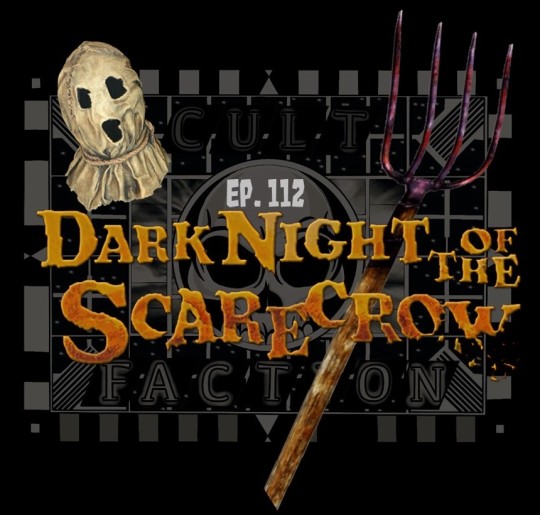
View On WordPress
#Ahsoka#Babylon 5#Babylon 5: The Road Home#Charles Durning#Claude Earl Jones#Cult Films#Cult Movies#Cult TV#Dark Night of Scarecrow#Discussion#Disney#Don Pendleton#Frank De Felitta#Harlan Coben#Harlan Coben&039;s Shelter#J.D. Feigelson#Jocelyn Brando#Keith A Pearson#Lane Smith#Larry Drake#One Piece#Paramount#Podcast#Robert F. Lyons#Shelter#Star Wars#The Executioner#The Road Home#The X-Files#Tonya Crowe
1 note
·
View note
Text
Common character archetypes in literature
Character archetypes are universal patterns of behavior, personality traits, and motivations that are commonly found in literature, mythology, and other forms of storytelling. They are often used as a shorthand to help readers quickly understand and relate to a character's role and purpose in the story.
Here are some common character archetypes:
The Hero: The hero is a brave and noble character who goes on a quest or journey to achieve a goal or overcome a challenge. Examples of heroes include Odysseus in Homer's "The Odyssey" and Frodo in J.R.R. Tolkien's "The Lord of the Rings."
The Villain: The villain is an evil character who opposes the hero and tries to prevent them from achieving their goal. Examples of villains include Darth Vader in "Star Wars" and Iago in Shakespeare's "Othello."
The Mentor: The mentor is a knowledgeable and seasoned figure who directs and encourages the protagonist throughout their adventure. Examples of mentors include Gandalf in "The Lord of the Rings" and Obi-Wan Kenobi in "Star Wars."
The Trickster: The trickster is a mischievous character who uses their wit and cunning to achieve their goals. Examples of tricksters include Loki in Norse mythology and Hermes in Greek mythology.
The Damsel in Distress: The damsel in distress is a female character who requires saving from a hero. Examples of damsels in distress include Princess Peach in the Mario video game series and Sleeping Beauty in the fairy tale of the same name.
The Wise Old Man/ Woman: The wise old man or woman is commonly portrayed as having immense wisdom and expertise, and often acts as a mentor or guide to the protagonist. Examples of wise old men and women include Dumbledore in the Harry Potter series and the Oracle in Greek mythology. Such archetypes have been frequently employed in literature over time to communicate universal themes and concepts about human existence.
The Innocent: The innocent is a pure and uncorrupted character who often serves as a symbol of hope and goodness. Examples of innocents include Dorothy in "The Wizard of Oz" and Boo Radley in "To Kill a Mockingbird."
The Outcast: The outcast is a character who is rejected by society and often feels a sense of alienation or isolation. Examples of outcasts include Frankenstein's monster in Mary Shelley's "Frankenstein" and Hester Prynne in Nathaniel Hawthorne's "The Scarlet Letter."
The Temptress: The temptress is a seductive female character who lures men into danger or temptation. Examples of temptresses include Circe in Greek mythology and the character of Delilah in the Bible.
The Scapegoat: The scapegoat is a character who is blamed for the problems or issues of others. Examples of scapegoats include Tom Robinson in "To Kill a Mockingbird" and Piggy in "Lord of the Flies."
The Rebel: The rebel is a character who challenges authority and often advocates for change. Examples of rebels include Winston Smith in George Orwell's "1984" and Holden Caulfield in J.D. Salinger's "The Catcher in the Rye."
The Everyman: The everyman is a relatable character who represents the average person and often serves as the protagonist in a story. Examples of everymen include Bilbo Baggins in "The Hobbit" and Winston Smith in "1984."
The Wise Fool: The wise fool is often portrayed as someone who appears to be simple-minded, foolish, or even insane, but who possesses insights and wisdom that are not immediately apparent to others. Examples of the wise fools include the protagonist in "Diary of a Madman" and Yorick in "Tristram Shandy".
The preceding list outlines the typical character archetypes found in literature. Can you determine which archetype best fits your characters?
If you want to read more about The Wise Fool archetype, click here: The Wise Fool - Who is that?

#creative writing#writing#writer things#writerscommunity#writeblr#own character#on writing#writersociety#writing community#writers#writetip#writing tips
728 notes
·
View notes
Note
Hey, amazing work you are doing <3
This is not a question, but thought I wanted to share this with everyone ^^
As someone who loves to read different kind of books and is always ready for recommendations, I was excited for the books being organized alphabetically in s2ep2. And since there was an X-ray of saying "... Would love for everyone to read these books..."
And I had way too much time so here is the list of those books:
No Woman, No Cry - Rita Marley
The Crow Road - Iain Banks
The curious incident of the dog in the night-time - Mark Haddon
Catch -22 - Joseph Heller
Love in the Time of Cholera - Garriet Garcia Marquez
Nineteen eighty four - Orwell George
The Big Sleep - Raymond Chandler
The Bible
The Great Gatsby -F. Scott Fitzgerald
The catcher in the Rye - J.D. Salinger
A Series of Unfortunate Events - Lemony Snicket
Herzog - Saul Bellow
I know I missed one or two, but those are at least there.
Hiya! :) Thank you, made a thing: :) (Added A Tale of Two Cities by Charles Dickens, I Capture the Castle by Dodie Smith and The Bell Jar by Sylvia Plath :)<3)

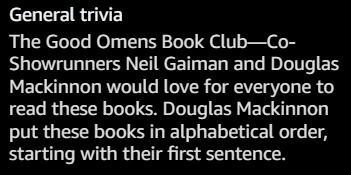
641 notes
·
View notes
Text

deAdder
* * * *
LETTERS FROM AN AMERICAN
August 28, 2024
Heather Cox Richardson
Aug 29, 2024
Former president Trump appears to have slid further since last night’s news about a new grand jury’s superseding indictment of him on charges of trying to overthrow the 2020 presidential election. Over the course of about four hours this morning, Trump posted 50 times on his social media platform, mostly reposting material that was associated with QAnon, violent, authoritarian, or conspiratorial.
He suggested he is “100% INNOCENT,” and that the indictment is a “Witch Hunt.” He called for trials and jail for special counsel Jack Smith, former president Barack Obama, and the members of Congress who investigated the January 6, 2021, attack on the U.S. Capitol. And he reposted a sexual insult about the political careers of both Vice President Kamala Harris and former Secretary of State Hillary Clinton.
Meanwhile, Trump’s campaign has today escalated the fight about Trump’s photo op Monday at Arlington National Cemetery, where campaign staff took photos and videos in Section 60, the burial ground of recent veterans, apparently over the strong objections of cemetery officials. Then the campaign released photos and a video from the visit attacking Harris.
Arlington National Cemetery was established on the former property of General Robert E. Lee in 1864, after the Lee family did not pay their property taxes. At the time, Lee was leading Confederate forces against the United States government, and those buried in the cemetery in its early years were those killed in the Civil War. The cemetery is one of two in the United States that is under the jurisdiction of the U.S. Army, and it is widely considered hallowed ground.
A statement from the Arlington National Cemetery reiterated: “Federal law prohibits political campaign or election-related activities within Army National Military Cemeteries, to include photographers, content creators or any other persons attending for purposes, or in direct support of a partisan political candidate's campaign. Arlington National Cemetery reinforced and widely shared this law and its prohibitions with all participants. We can confirm there was an incident, and a report was filed.”
Republican vice presidential candidate Senator J.D. Vance of Ohio first said there was a “little disagreement” at the cemetery, but in Erie, Pennsylvania, today he tried to turn the incident into an attack on Harris. “She wants to yell at Donald Trump because he showed up?” Vance said. “She can go to hell.” Harris has not, in fact, commented on the controversy.
VoteVets, a progressive organization that works to elect veterans to office, called the Arlington episode “sickening.”
In an interview with television personality Dr. Phil that aired last night, Trump suggested that Democrats in California each got seven ballots and that he would win in the state if Jesus Christ counted the votes. As Philip Bump of the Washington Post pointed out today, Trump has always said he could not lose elections unless there was fraud; last night he suggested repeatedly that God wants him to win the 2024 election.
When asked his opinion of Vice President Harris, Trump once again called her “a Marxist,” a reference that would normally be used to refer to someone who agrees with the basic principles outlined by nineteenth-century philosopher Karl Marx in his theory of how society works. In Marx’s era, people in the U.S. and Europe were grappling with what industrialization would mean for the relationship between individual workers, employers, resources, and society. Marx believed that there was a growing conflict between workers and capitalists that would eventually lead to a revolution in which workers would take over the means of production—factories, farms, and so on—and end economic inequality.
Harris has shown no signs of embracing this philosophy, and on August 15, when Trump talked at reporters for more than an hour at his Bedminster property in front of a table with coffee and breakfast cereal at what was supposed to be a press conference on the economy, he said of his campaign strategy: “All we have to do is define our opponent as being a communist or a socialist or somebody that’s going to destroy our country.”
Trump uses “Marxist,” “communist,” and “socialist” interchangeably, and when he and his allies accuse Democrats of being one of those things, they are not talking about an economic system in which the people, represented by the government, take control of the means of production. They are using a peculiarly American adaptation of the term “socialist.”
True socialism has never been popular in America. The best it has ever done in a national election was in 1912, when labor organizer Eugene V. Debs, running for president as a Socialist, won 6% of the vote, coming in behind Woodrow Wilson, Theodore Roosevelt, and William Howard Taft.
What Republicans mean by "socialism" in America is a product of the years immediately after the Civil War, when African American men first got the right to vote. Eager to join the economic system from which they had previously been excluded, these men voted for leaders who promised to rebuild the South, provide schools and hospitals (as well as prosthetics for veterans, a vital need in the post-war U.S.), and develop the economy with railroads to provide an equal opportunity for all men to rise to prosperity.
Former Confederates loathed the idea of Black men voting almost as much as they hated the idea of equal rights. They insisted that the public programs poorer voters wanted were simply a redistribution of wealth from prosperous white men to undeserving Black Americans who wanted a handout, although white people would also benefit from such programs. Improvements could be paid for only with tax levies, and white men were the only ones with property in the Reconstruction South. Thus, public investments in roads and schools and hospitals would redistribute wealth from propertied men to poor people, from white men to Black people. It was, opponents said, “socialism.” Poor black voters were instituting, one popular magazine wrote, "Socialism in South Carolina" and should be kept from the polls.
This idea that it was dangerous for working people to participate in government caught on in the North as immigrants moved into growing cities to work in the developing factories. Like their counterparts in the South, they voted for roads and schools, and wealthy men insisted these programs meant a redistribution of wealth through tax dollars. They got more concerned still when a majority of Americans began to call for regulation to keep businessmen from gouging consumers, polluting the environment, and poisoning the food supply (the reason you needed to worry about strangers and candy in that era was that candy was often painted with lead paint).
Any attempt to regulate business would impinge on a man's liberty, wealthy men argued, and it would cost tax dollars to hire inspectors. Thus, they said, it was a redistribution of wealth. Long before the Bolshevik Revolution in Russia brought the fears of a workers' government to life, Americans argued that their economy was under siege by socialists. Their conviction did indeed lead to a redistribution of wealth, but as regular Americans were kept from voting, the wealth went dramatically upward, not down.
The powerful formula linking racism to the idea of an active government and arguing that a government that promotes infrastructure, provides a basic social safety net, and regulates business is socialism has shaped American history since Reconstruction. In the modern era the Brown v. Board of Education Supreme Court decision of 1954 enabled wealthy men to convince voters that their tax dollars were being taken from them to promote the interests of Black Americans. President Ronald Reagan made that formula central to the Republican Party, and it has lived there ever since, as Republicans call any policy designed to help ordinary Americans “socialism.”
Vice President Harris recently said she would continue the work of the Biden administration and crack down on the price-fixing, price gouging, and corporate mergers that drove high grocery prices in the wake of the pandemic. Such plans have been on the table for a while: Senator Bob Casey (D-PA) noted last year that from July 2020 through July 2022, inflation rose by 14% and corporate profits rose by 75%. He backed a measure introduced by Senator Elizabeth Warren (D-MA)—who came up with the idea of the Consumer Financial Protection Bureau—that would set standards to prevent large corporations from price gouging during an “exceptional market shock” like a power grid failure, a public health emergency, a natural disaster, and so on. Harris’s proposal was met with pushback from opponents saying that such a law would do more harm than good and that post-pandemic high inflation was driven by the market.
Yesterday, during testimony for an antitrust case, an email from the senior director for pricing at the grocery giant Kroger, Andy Groff, to other Kroger executives seemed to prove that those calling out price gouging were at least in part right. In it, Groff wrote: “On milk and eggs, retail inflation has been significantly higher than cost inflation.”
LETTERS FROM AN AMERICAN
HEATHER COX RICHARDSON
#Letters From An American#Heather Cox Richardson#history#socialism#Marxism#racism#American History#election 2024#Arlington National Cemetery
26 notes
·
View notes
Text
Jess Mariano: An Inspired Reading Recommendations List
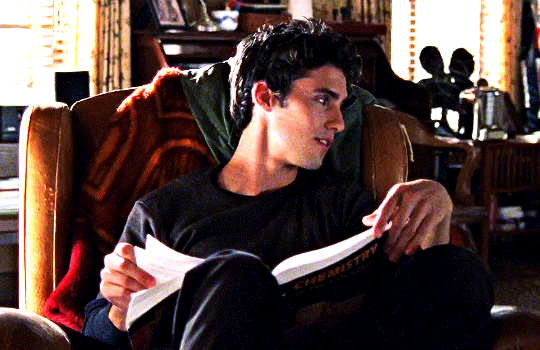
Please Kill Me: The Uncensored Oral History Of Punk by Legs McNeil and Gillian McCain
On The Road by Jack Kerouac
Sweet Dreams: The Story Of The New Romantics by Dylan Jones
Pride And Prejudice by Jane Austen
The Sun Also Rises by Ernest Hemingway
We Owe You Nothing, Punk Planet: The Collected Interviews by Daniel Sinker
Factotum by Charles Bukowski
The Green Mile by Stephen King
Slaughterhouse Five by Kurt Vonnegut
Why Bowie Matters by Will Brooker
A Light that Never Goes Out: The Enduring Saga of the Smiths by Tony Fletcher
The Tell-Tale Heart by Edgar Allan Poe
1984 by George Orwell
Punk Avenue: The New York City Underground 1972-1982 by Phil Marcade
Emma by Jane Austen
Neverwhere by Neil Gaiman
The Catcher In The Rye by J.D. Salinger
Howl and Other Poems by Allen Ginsberg
The Old Man And The Sea by Ernest Hemingway
Daisy Jones & The Six by Taylor Jenkins Reid
#books#book blog#booklr#readblr#book reccs#book recommendations#bookaddict#bookblr#bookworm#jess mariano#team jess#jess mariano vibes#jess mariano book list#jess mariano reading#book list#gilmore girls#gilmore girls book list#ernest only has lovely things to say about you
127 notes
·
View notes
Text
Sonnet: J.D. Smith, 'Elegy'
We weren’t allowed the time to contemplate What talents he in time might come to show, What fame or wealth he might accumulate, What love and other passions he might know. We had, instead, the chance to see him crawl And graduate to solid food, to take Some wobbling steps that ended in a fall, To hand an uncle’s dog a piece of cake. To say more is to claim a flare’s bright arc Could have reached…

View On WordPress
0 notes
Text

Dark Night of the Scarecrow and Dark Night of the Scarecrow 2 will be released together on 4K Ultra HD and Blu-ray on September 10 via VCI Entertainment.
Dark Night of the Scarecrow is a 1981 made-for-TV horror movie directed by Frank De Felitta and written by J.D. Feigelson. Larry Drake, Charles Durning, Tonya Crowe, Jocelyn Brando, and Lane Smith.
Dark Night of the Scarecrow 2 is a 2022 sequel written and directed by J.D. Feigelson. Amber Wedding, Aiden Shurr, Carol Dines, Adam Snyder, and Tim Gooch star.
Special features are listed below.
Special features:
Dark Night of the Scarecrow audio commentary by writer J.D. Feigelson (new)
Dark Night of the Scarecrow audio commentary by film historians Heath Holland, Robert Kell, and Amanda Reyes (new)
Dark Night of the Scarecrow audio commentary by director Frank DeFelitta and writer J.D. Feigelson
Bubba Didn't Do It: 30 Years of the Scarecrow featurette
Dark Night of the Scarecrow cast reunion Q&A at Frightfest 2011
1981 CBS world premier promo
1985 CBS re-broadcast promo
Photo gallery
youtube
Dark Night of the Scarecrow tells of the murder of a young girl, Marylee Williams (Tonya Crowe), and the vicious mob justice wrongly enacted on Marylee’s innocent, mentally challenged friend Bubba Ritter (Larry Drake). A cover-up by the murderous mob, led by Otis P. Hazelrigg (Charles Durning), results in a strange turn of events. Soon, one by one, the guilty are stalked and served a specific kind of justice by an unknown figure.
youtube
40 years in the making, Dark Night of the Scarecrow 2 picks up with Chris (Amber Wedding) and her young son Jeremy (Aiden Shurr), moving to the small town where the events of the first film took place. Chris finds a tattered scarecrow amongst the cornfields of her new home and tells the effigy her secret; the real reason she has come to this small town. Soon after, a mysterious figure begins to roam the fields of their new home… stalking them or protecting them from unknown threats?
Pre-order Dark Night of the Scarecrows 1 & 2.
#dark night of the scarecrow#horror#80s horror#1980s horror#dark night of the scarecrow 2#vci#dvd#gift#made for tv movie#tv movie#larry drake#charles durning#lane smith#80s movies#1980s movies#Youtube
20 notes
·
View notes
Text
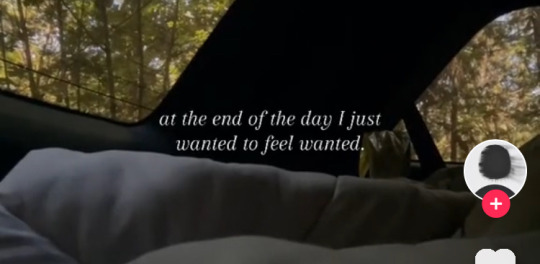

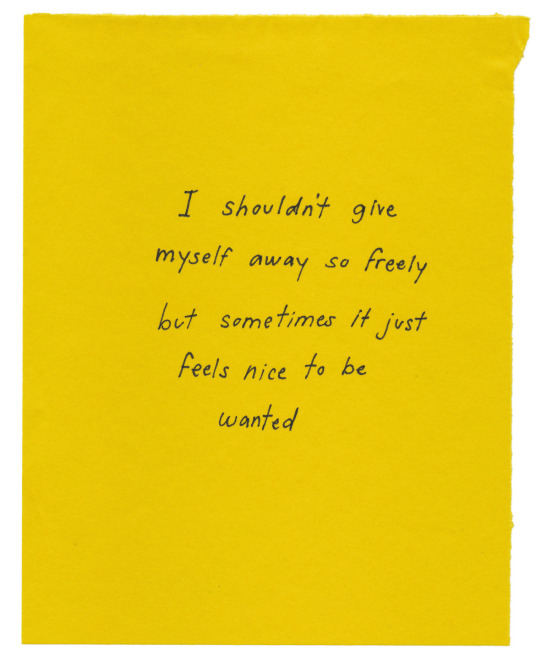

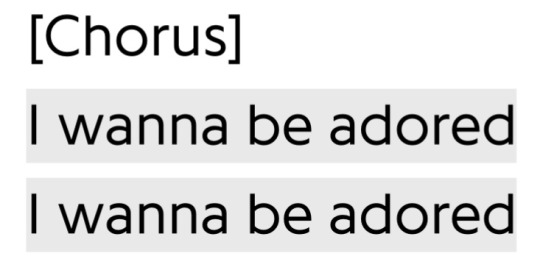





whybesadbehigh on tiktok // The Smiths // Kelsey Landsgaard // J.D. McLatchy // The Stone Roses // Lorde // Frank O’Hara // Michael Cunningham // Sylvia Plath // Taylor Swift
#old one#web weaving#parallels#the smiths#taylor swift#sylvia plath#lorde#dark academia#light academia#aesthetic#10#my web weaving#08
23 notes
·
View notes
Text

Donald Trump selects Ohio Senator J.D. Vance (R) to be his running mate
Katie Smith and Marty Hobe at NewsNation:
(NewsNation) — Former President Donald Trump named Ohio Sen. J.D. Vance as his running mate for the 2024 presidential ticket, just days after an assassination attempt at a rally in Pennsylvania.
Trump announced his pick on Truth Social, praising Vance’s credentials and work in Ohio, saying that during the campaign, Vance “will be strongly focused on the people he fought so brilliantly for, the American Workers and Farmers in Pennsylvania, Michigan, Wisconsin, Ohio, Minnesota, and far beyond.”
The announcement came Monday as members of the party gathered in Milwaukee for the Republican National Convention. Trump’s campaign revealed little about the presumptive GOP nominee’s top considerations until then, saying anyone who claimed to know specifics was “lying unless that person is named Donald J. Trump.”
Vance, who attended Yale law school, came to national prominence after writing his memoir, “Hillbilly Elegy,” which painted a picture of his childhood being raised in a working-class, poverty-stricken area of the Appalachian mountains. While many people praised the book, which focused on themes of self-reliance, others criticized it for painting a stereotypical and inauthentic view of Appalachia.
Having only served in the Senate for two years, Vance is a relative newcomer to politics. Vance has worked to appeal to working-class voters, despite having worked as a venture capitalist prior to his service in the Senate.
Previously, Vance butted heads with Trump, at one point referring to him as “America’s Hitler.” The pair appear to have mended fences some time ago, with Vance recently making frequent appearances at Trump fundraisers and events.
On the day the RNC kicks off in Milwaukee, Donald Trump has selected Ohio Senator J.D. Vance (R) to be his running mate.
16 notes
·
View notes
Text

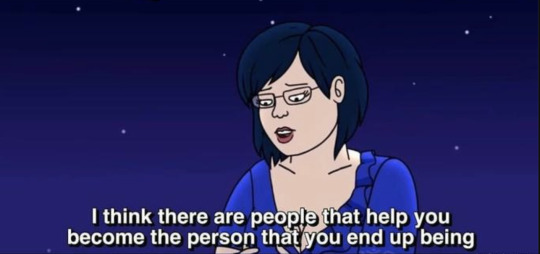


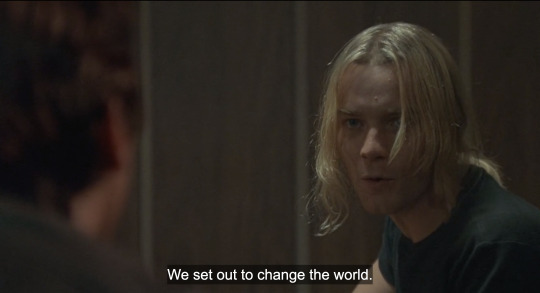
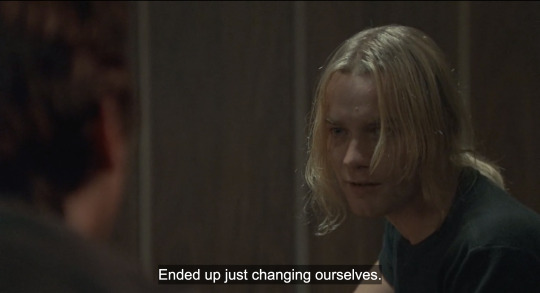

J.D. Salinger, Catcher in the Rye // BoJack Horseman 6.16 "Nice While it Lasted," // The Smiths, "The Queen is Dead" // Velvet Goldmine dir. Todd Haynes // John Knowles, A Separate Peace
#moodboard for when i'm visiting my parents' house during holidays#i am SUFFERING with the passage of time guys!!!!#webweaving#catcher in the rye#bojack horseman#the smiths#velvet goldmine#a separate peace#asp#fml
47 notes
·
View notes